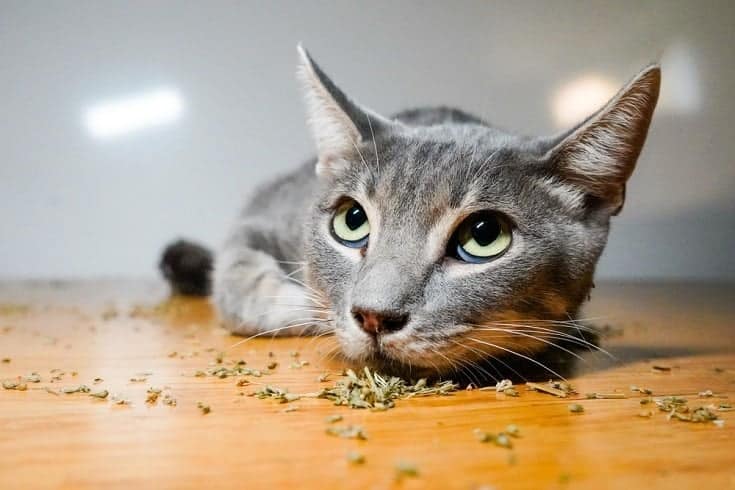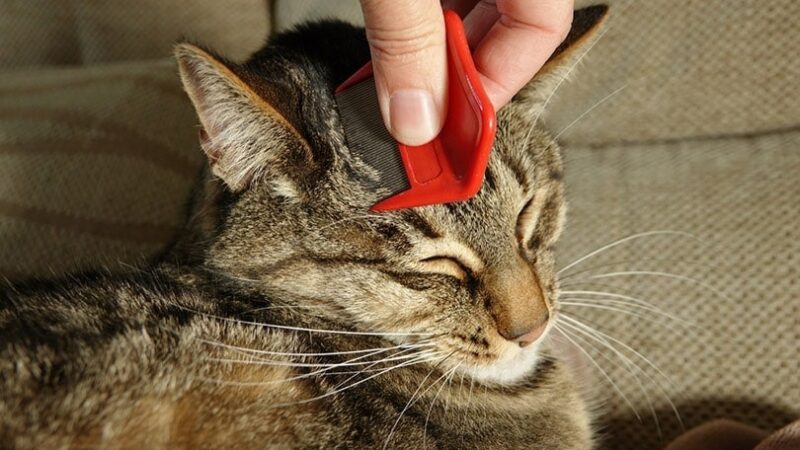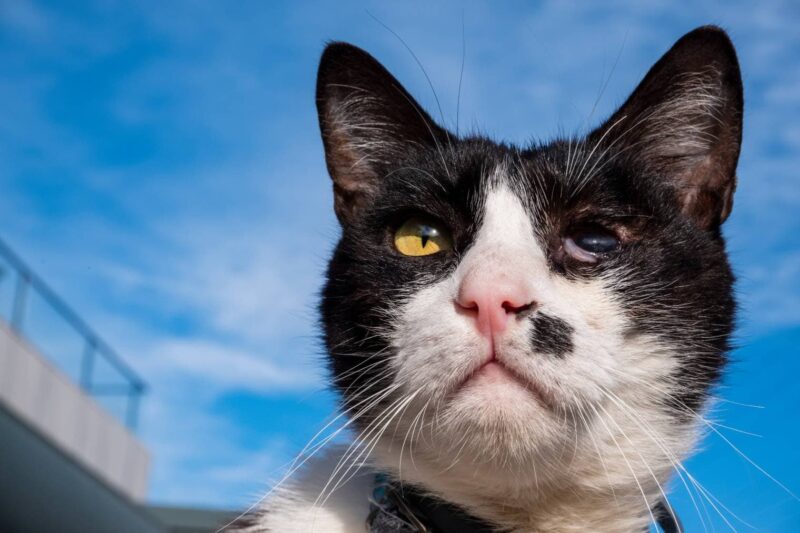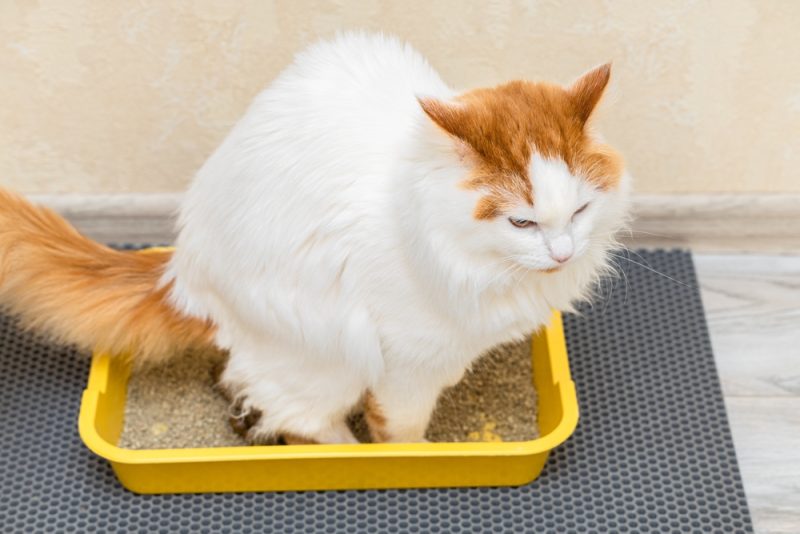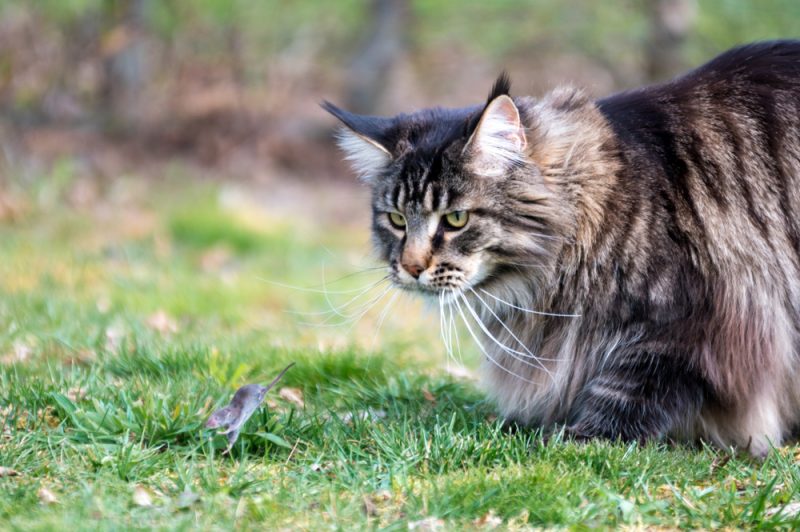Cats have a powerful sense of smell to help them find prey and interact with their environment. Toys that engage this sense, such as toys infused with catnip, can provide a lot of enrichment for cats by getting them “high.”
Not all cats respond to catnip, however. Here are four options to get your cat high legally and safely for some recreational enjoyment.
The 4 Totally Legal & Safe Ways to Get Your Cat High
1. Catnip
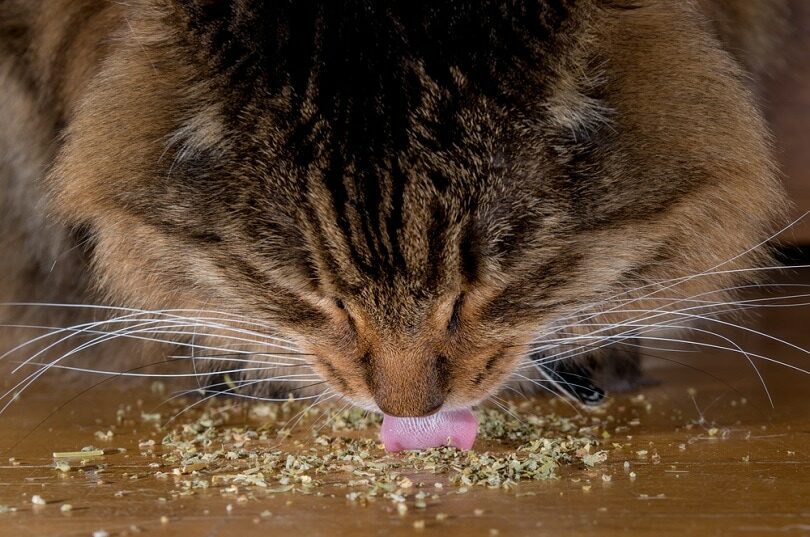
| Scientific Name | Nepeta cataria |
| Alternative Names | Catswort, catwort, catmint |
| Description | Perennial herb with brown-green foliage |
Catnip is well known among cat owners as a natural way to get your cat high. It’s one of 250 species in the mint family and contains an essential oil that drives cats wild. Catnip targets receptors in the cat’s brain to make them hyperactive and excitable when it’s smelled, but eating it often has the opposite effect—it mellows them out.
However, the sensitivity to catnip is inherited, so about 40% of cats may not react to catnip.
2. Silvervine
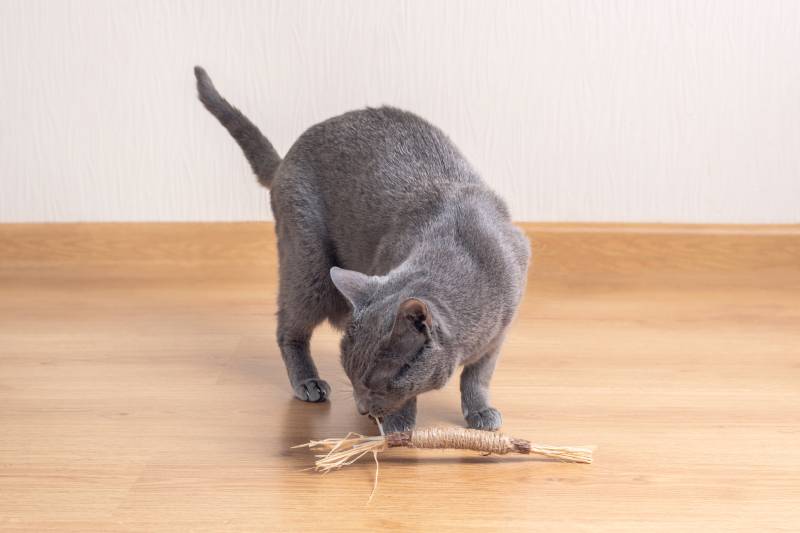
| Scientific Name | Actinidia polygama |
| Alternative Names | Matatabi, cat powder |
| Description | Deciduous climber with silver and white leaves |
If your cat doesn’t respond to catnip, there are several alternatives. Silvervine tends to be the most effective of them. Native to the mountainous regions of China, Japan, and Russia, silvervine is a member of the kiwi family that can produce quick euphoric effects in cats. Though the effects only last about 30 minutes, cats may become hyperactive or mellow after smelling silvervine.
3. Valerian
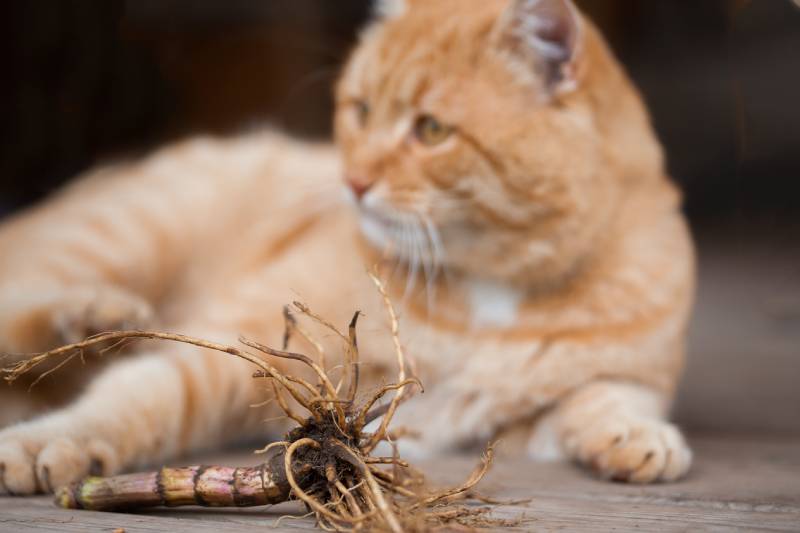
| Scientific Name | Valeriana officinalis |
| Alternative Names | Valerian root |
| Description | Perennial flowering plant with pink or white flowers |
Valerian is a common herb in traditional medicine that’s used for its soothing and anti-anxiety effects. In cats, valerian is a safe attractant that contains substances that can alter behavior. Valerian can be effective in cats that don’t respond to catnip, either as an enrichment tool or an aid to make cats more agreeable to training.
4. Honeysuckle

| Scientific Name | Lonicera tatarica |
| Alternative Names | None |
| Description | Twining climber with oval, symmetrical flowers, and red or orange berries |
Honeysuckle plants have a natural chemical that activates a cat’s pheromone receptors. The results can vary, ranging from meowing and rolling around to growling, chasing invisible prey, or spacing out. The effects can last up to two hours.
Honeysuckle can be an alternative to catnip for cats that respond to it, but there are some precautions to take. There are many species that fall under the “honeysuckle” name, some of which can be toxic to cats. Only use the species listed above. Honeysuckle berries, leaves, and flowers are poisonous to cats and should never be given to them. Only the woody part of the plant, which may be sold as a spray or as part of a toy, is safe for cats.

Precautions for Intoxicating Substances
While the substances on this list are safe and legal for cats, there are some precautions you need to take to ensure your cat’s high doesn’t have any adverse effects.
- As mentioned, only the woody part of the honeysuckle plant is safe for cats. Never give cats the berries, leaves, or flowers from a honeysuckle plant. If you want to err on the side of caution, only use commercial products with honeysuckle from brands you trust, or check with a vet if you’re not sure.
- Test your cat’s reaction the first time. Only give a small amount and pay attention to how your cat responds. If your cat has negative reactions, such as trouble walking or stomach upset, discontinue the use of the herb.
- Avoid giving catnip or other intoxicating herbs to kittens under 8 weeks old and senior cats. These two groups can have poor responses.
- Intoxicating herbs aren’t like human drugs. Higher amounts don’t necessarily have stronger psychoactive effects, and cats can’t fatally overdose on catnip or other herbs. However, overexposure can dull the effects, so it’s best to provide intoxicating herbs occasionally to ensure they’re still fun.
- If you give your cat an herb in a chewable form, such as silvervine sticks, supervise them. Fragments or small pieces can break off and may become a choking hazard. If swallowed, it puts your cat at risk for an obstruction.
- Never give your cat intoxicating substances intended for human-use, including marijuana. Whether it’s legal or not, substances intended for human use can easily cause toxicity and other adverse reactions in cats. Stick to these legal and safe herbs.
If you are concerned or have questions about your cat’s health, you can also speak to a vet from the comfort of your own home.
If you need to speak with a vet but can't get to one, head over to PangoVet. It's an online service where you can talk to a vet online and get the advice you need for your pet — all at an affordable price!


Conclusion
Cats need a lot of enrichment to stay happy and healthy, which can include an occasional “high” from intoxicating herbs. Whether you’re looking for variety or options for a cat that doesn’t like catnip, these herbs are legal, safe, and fun for cats.
Featured Image Credit: Kelly-Magnuson, Shutterstock
